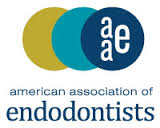Are you tired of waking up still feeling exhausted, in spite of what you thought was a good night’s sleep? Tired of suffering from headaches, jaw pain, and irritability? Many people believe these are unrelated symptoms, and choose to simply suffer through them. In the process, they may find their overall health seems to decline, as few things have a greater effect on a person’s wellbeing as whether or not they’re getting adequate rest. But in some cases, all these symptoms could be the result of a singular condition, sleep apnea. It’s definitely not a condition that should be ignored. Thankfully, your dentist could actually help you treat sleep apnea!
Do You Have a Problem with Sleep Apnea?
How do you recognize if you’re suffering from sleep apnea? There are many symptoms that can clue you in that there might be a problem. While they don’t necessarily mean that it is sleep apnea, they are certainly things to consult your dentist and/or doctor about, as anything negatively impacting your sleep can have dire consequences on your overall health and productivity.
- Loud snoring
- Waking up feeling shortness of breath (your partner may have noticed you waking up often during the night)
- Irritability
- Headaches upon waking
- Problems staying asleep at night
- Problems staying awake during the day
Why It’s a Problem
Though there are different types of sleep apnea, obstructive sleep apnea is the most dangerous because it interferes with a person’s ability to get a consistent air supply as he or she sleeps. It occurs when a person’s back throat muscles relax, causing soft tissue to obstruct the airway. This can lower oxygen levels in the blood and cause a person to wake up hundreds of times in a single night, severely limiting the quality rest a person really achieves.
How Can a Dentist Help?
In some cases, sleep apnea is caused because of misalignment of the teeth or jaw. In these cases orthodontic treatment can prove effective, but that is not the only way to address sleep apnea.
Often a simple oral appliance similar to a mouth guard can be used to help keep the jaw in a more comfortable and proper alignment as a person sleeps. This can be a quick, minimally invasive and effective way a preventive dentist can help treat sleep apnea for many patients.










